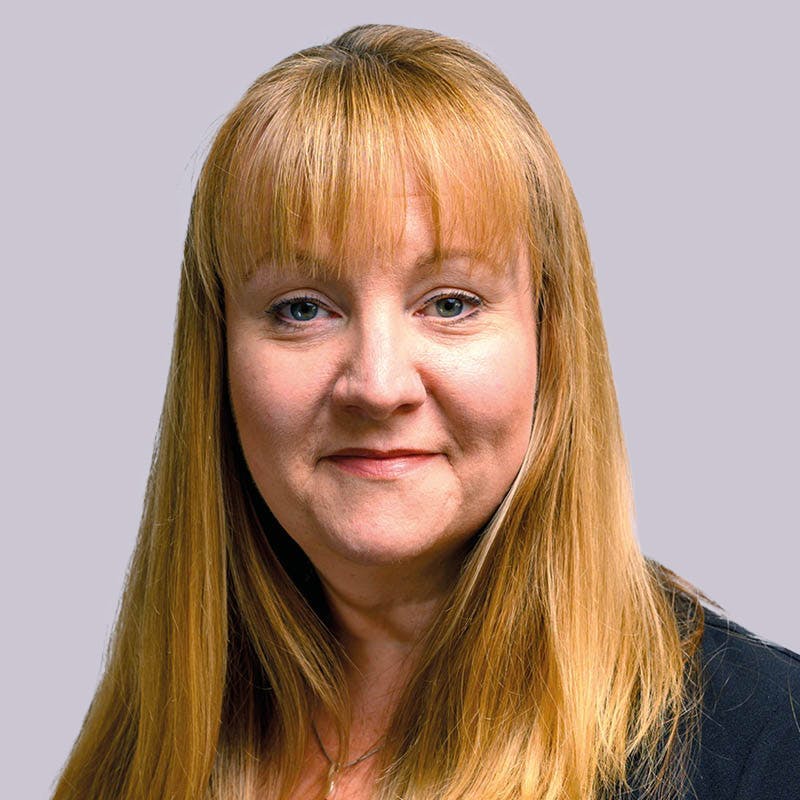Baby T - inquest conclusion
By Clare Gooch, Fay Russell
Our colleague, Fay Russell, has represented another family at an Inquest this month relating to the death of their newborn son in January 2021.
Baby T was born in January 2021 and sadly died 2 days later in the neonatal intensive care unit at Burnley Hospital.

Prior to his birth, his mother attended Burnley Hospital and reported her waters had broken. She was discharged home without being offered an induction of labour. T’s mother returned to hospital the following morning and reported bleeding and reduced movements. She was admitted to a midwife led unit instead of the obstetric unit, to which she should have been referred immediately.
The Coroner criticised the Trust for failing to discuss options for induction with baby T’s mother when she first attended the midwife led unit. Had she been given the option of being induced, he found she would have accepted it, her labour would have been induced and baby T’s condition continuously monitored. When Baby T reached a point where he was in distress, which he would have as his mother was experiencing a abruption, this would have been identified earlier and he would have been delivered by emergency section and survived.
The Coroner further criticised the Trust heavily for failing to recognise and pass on information relating to bleeding and reduced movement the following morning – all of which the Coroner linked to the causation of baby T’s death. Expert medico-legal opinion stated that any report of bleeding could be a sign of a abruption and should be taken very seriously. Coupled with reports of reduced movements, baby T’s mother should have been admitted to an obstetric care unit straight away, as a high risk patient. When she was admitted, the cardiotocograph also known as CTG (which measures heart rate and wellbeing) was immediately abnormal, but as the history of bleeding and reduced movement were not taken into account, there was further delay in recognising baby T’s deteriorating condition and expediting delivery by a category 1 emergency section. The Coroner heard evidence that baby T could have been delivered up to an hour earlier than he was, or even earlier than that, had his mother been admitted the night before.
The Coroner heard evidence that the Trust’s decision to perform a category 2 section, instead of a category 1 emergency section, meant clinicians did not recognise the urgency of the situation. Baby T should also have been born within 30 minutes of the decision for a section but, as the Trust did not have an operating theatre available, delivery took 34 minutes. Expert evidence heard at the Inquest confirmed that every minute counts in a baby compromised by abruption.
Baby T was born in very poor condition, with very low cardiac output and not breathing. Intensive resuscitation was attempted for over half an hour, by specially trained clinicians, but there had been a problem with sending out a “crash bleep” call to the rest of the team and there was a delay in their attendance. He was ultimately stabilised and transferred to the intensive care unit for specialist care. Tragically, his condition deteriorated and he died in his mother’s arms at 43 hours old.
The Coroner found that, had baby T’s mother received proper care, either with the offer of induction of labour, or the recognition that bleeding and reduced movements were an obstetric emergency, baby T would have been born alive and survived.
The Coroner highlighted a number of serious failings at the Trust, starting with failing to ensure baby T’s mother was fully informed of her options and the risks and benefits of those options, failure of clinicians to recognise the seriousness of symptoms reported to them, failure to admit baby T’s mother to the obstetric unit for a high risk treatment plan and also failing to hand over essential clinical information to ensure the obstetric team could identify an obstetric emergency and make fully informed decisions as to care. The Coroner found that these failings led directly to baby T’s death.
The Coroner also made a finding of neglect – a gross failure to provide basic medical attention – which is not common in cases of this nature and shows just how serious the situation was.
The Coroner heard evidence from the Trust that they had made significant changes as a direct result of this death. The Trust have now introduced computerised risk assessments that cannot be bypassed, they have updated key guidance documents and rolled out mandatory training to improve clinical decision making. Any clinician not attending training is removed from providing care to patients until they have completed the training. A monitoring lead midwife and obstetric consultant have been put in place to ensure compliance with updated Trust guidance and training. The extent of the changes made at the Trust highlights the extent of the failings that led to baby T’s death.
The Trust also reviewed their internal processes for investigating and referring baby deaths to the Coroner. A gap in referrals was identified between 2017 and 2021 but the Trust assured the Coroner a full review into that time period has taken place.
Fay Russell, who represented the family at Inquest, commented:
“The Inquest evidence makes clear baby T’s death was avoidable. He was a full term baby who should have gone home with his parents to join their growing family. His parents have had to sit through the most exhausting and upsetting evidence during the Inquest and have had to re-live what happened to them and their much loved baby. It has been a long process. His parents knew what had happened, their son died, but now they know more about how it happened. Even with that knowledge, nothing can take away their grief. Nothing can bring their baby back, but his parents want to make sure the Trust makes changes so that no other family has to go through the trauma of losing a child who should have gone home, happy and healthy ”.
Find out how Switalskis can help you
Call Switalskis today on 0800 1380 458 . Alternatively, contact us through the website to learn more.




